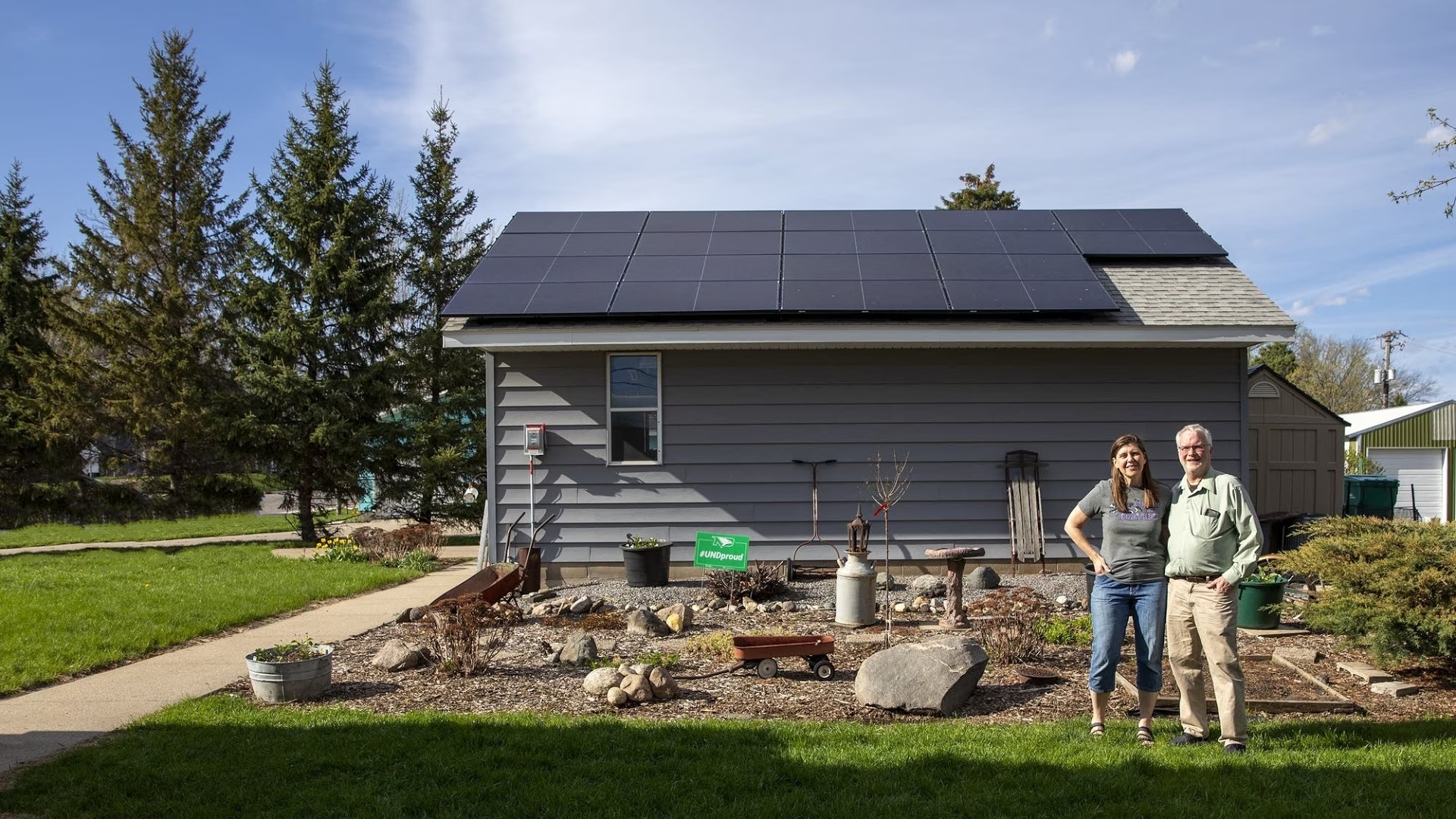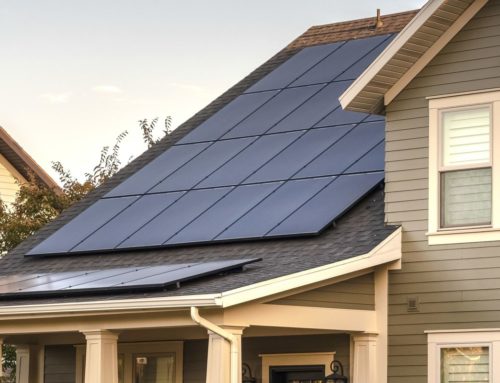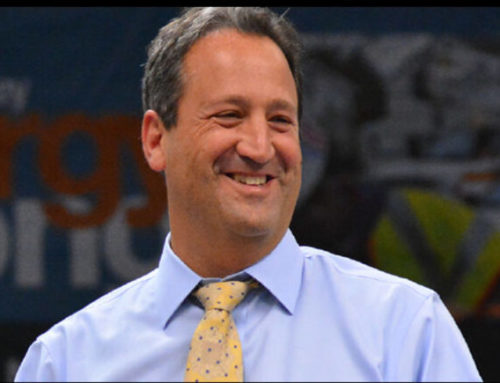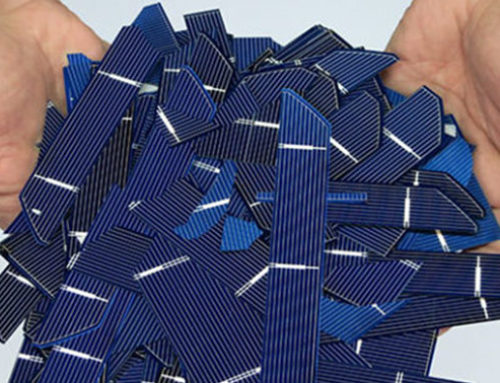How to avoid ‘bad-actors’ in booming solar industry

Photo courtesy of MPR News
May 19, 2022
Third-party sales organizations and lead generation companies have become all to prevalent in residential solar. That’s bad for consumers. Here’s why:
First, these sales organizations and lead generation tools (mainly websites which get you to put in your contact information) are incentivized to get as many people as possible and so use less-than-honest tactics to get people hooked. Whether it’s promises of unrealistic savings, huge incentives, or “free” solar, many of these companies will say or do nearly anything to get you to sign up. If it sounds too good to be true, it probably is.
Second, the disconnect between someone selling solar and the company installing it breaks the chain of accountability that would otherwise be in place if sales and installations happened within the same company. Once a salesperson gets a homeowner to sign a contract, they move on to the next one and whatever promises they’ve made to the homeowner are now someone else’s problem to deal with.
The solution? Avoid giving out your contact information to generic solar websites. If anyone knocks on your door or calls you trying to sell solar, make sure you ask them to describe in detail who they work for and who will actually install your system and then do some internet research on those companies. And in general, avoid anything that resembles a slick salesperson or that sounds too good to be true.
Another option is to use a third-party, objective advisor like Sentinel who works for you and on your behalf to get the best solar possible for you. Sentinel was founded specifically to protect homeowners from ‘bad-actors’ such as those described in this article. Find out how we help homeowners get honest answers and better solar through our process.
Here’s a link to the original article on MPR or you can read the text from the full article below.
Frank and Angela Haynes wanted to put solar panels on their century-old home in Albany, about 20 miles west of St. Cloud.
Frank Haynes worked for an electric utility years ago, when most electricity was produced by burning coal. He knew that solar is becoming an affordable energy alternative to reduce fossil fuel use, which produces greenhouse gasses that contribute to climate change.
“There really aren’t many ways that individuals can do that, so we felt that it was something that we could do,” he said. “Everybody’s got to do a little something.”
In hindsight, Haynes said he probably should have been a little more cautious when choosing a solar company.
Haynes said he clicked on an online advertisement about solar energy and contacted Brio, a Utah-based solar sales company. A few months later, he signed a contract for a rooftop solar energy system.
It was a frustrating experience, he said, marked by numerous delays and frequent staff turnover that made it difficult to get answers.
“From August, we didn’t have a working system until nine months later,” Haynes said. “And there were huge gaps in there, like months and weeks where we didn’t hear from them at all.”
Last month, Minnesota Attorney General Keith Ellison announced he is suing four Utah-based solar companies: Brio Energy, Bello Solar Energy, Avolta Power and Sunny Solar Utah. The lawsuit also names three company executives.
Ellison said the companies led customers to believe they were affiliated with their local utility. He said they used high-pressure sales tactics to convince customers to sign binding contracts, and threatened legal action if the homeowners tried to cancel.
Assistant attorney general Kirsi Poupore said the companies’ executives instructed sales staff to exaggerate the financial benefits of solar panels, especially to elderly homeowners.
Brio, which has since changed its name to Avolta, didn’t respond to an emailed request for comment.
Lawsuits welcomed
Some advocates of solar energy say they welcome the lawsuits against unethical companies that put the industry’s reputation at risk.
“Anything that we can do to eliminate bad actors and mitigate harms to consumers is the best thing to do for the long-term success of our industry,” said Logan O’Grady, executive director of the Minnesota Solar Energy Industries Association, a trade group with 145 members in the solar and energy storage industries.
There are plenty of reputable companies doing business in Minnesota, said Bobby King, state director of Solar United Neighbors, a nonprofit solar purchasing cooperative. He recommends getting multiple bids and references, and shopping around for financing before choosing an installer.
“I also wouldn’t sign anything until someone’s visited your home, looked it over, and then come back to you with a proposal based on that visit,” King said.
All-Energy Solar, a St. Paul-based solar designer and builder, has been asked to fix some of the faulty systems. CEO Michael Allen said experienced solar companies can provide a precise estimate of how much electricity a system will generate at a given location using weather data.
“We can tell you exactly how much sun is going to shine in St. Paul, within reason, year over year over year,” he said.
Solar is an investment a homeowner will live with for the next 20 to 30 years, Allen said, so it’s important to pick a company that will be around for the long term.
“What we’re finding that’s really sad, as we’re fixing a lot of these problems and customers’ issues, is that they don’t even know who they actually ultimately contracted with,” he said.
Another obstacle many home and business owners have encountered is a delay in getting small solar projects connected to the electrical grid.
Earlier this year, Minnesota’s utility regulators told Xcel Energy to work to clear the backlog of projects that have resulted in delays.
There has been some improvement in the wait times since the Minnesota Public Utilities Commission made some adjustments to the approval and connection process, O’Grady said.
Happy with his choice
Despite the setbacks, Haynes said he’s still glad he chose solar energy. The system on the roof of his garage is now producing between 40 to 60 percent of his electricity.
Haynes’ system cost $22,000 after a 26 percent federal tax credit. In eight to ten years, he expects it will pay for itself with savings on his electric bill.
“Our payment for the solar system is less than our average electric bills,” he said. “And at the end of 10 years, we’ll own it, and it’ll still be going for another 15 years.”
Haynes isn’t part of Ellison’s lawsuit. But he did contact the attorney general’s office to share his experience, which he said wasn’t all negative. Brio paid for damage to his lawn that occurred during installation, and for his electric bill during the time the panels weren’t working, he said.
Haynes said he probably paid more for his solar system than he would have if he’d done his research first. But for him, knowing that the solar panels will be producing clean electricity for years to come makes that investment worthwhile.
“We would do it again, because we have more motivation than just the money,” he said.
How to avoid ‘bad-actors’ in booming solar industry

Photo courtesy of MPR News
May 19, 2022
Third-party sales organizations and lead generation companies have become all to prevalent in residential solar. That’s bad for consumers. Here’s why:
First, these sales organizations and lead generation tools (mainly websites which get you to put in your contact information) are incentivized to get as many people as possible and so use less-than-honest tactics to get people hooked. Whether it’s promises of unrealistic savings, huge incentives, or “free” solar, many of these companies will say or do nearly anything to get you to sign up. If it sounds too good to be true, it probably is.
Second, the disconnect between someone selling solar and the company installing it breaks the chain of accountability that would otherwise be in place if sales and installations happened within the same company. Once a salesperson gets a homeowner to sign a contract, they move on to the next one and whatever promises they’ve made to the homeowner are now someone else’s problem to deal with.
The solution? Avoid giving out your contact information to generic solar websites. If anyone knocks on your door or calls you trying to sell solar, make sure you ask them to describe in detail who they work for and who will actually install your system and then do some internet research on those companies. And in general, avoid anything that resembles a slick salesperson or that sounds too good to be true.
Another option is to use a third-party, objective advisor like Sentinel who works for you and on your behalf to get the best solar possible for you. Sentinel was founded specifically to protect homeowners from ‘bad-actors’ such as those described in this article. Find out how we help homeowners get honest answers and better solar through our process.
Here’s a link to the original article on MPR or you can read the text from the full article below.
Frank and Angela Haynes wanted to put solar panels on their century-old home in Albany, about 20 miles west of St. Cloud.
Frank Haynes worked for an electric utility years ago, when most electricity was produced by burning coal. He knew that solar is becoming an affordable energy alternative to reduce fossil fuel use, which produces greenhouse gasses that contribute to climate change.
“There really aren’t many ways that individuals can do that, so we felt that it was something that we could do,” he said. “Everybody’s got to do a little something.”
In hindsight, Haynes said he probably should have been a little more cautious when choosing a solar company.
Haynes said he clicked on an online advertisement about solar energy and contacted Brio, a Utah-based solar sales company. A few months later, he signed a contract for a rooftop solar energy system.
It was a frustrating experience, he said, marked by numerous delays and frequent staff turnover that made it difficult to get answers.
“From August, we didn’t have a working system until nine months later,” Haynes said. “And there were huge gaps in there, like months and weeks where we didn’t hear from them at all.”
Last month, Minnesota Attorney General Keith Ellison announced he is suing four Utah-based solar companies: Brio Energy, Bello Solar Energy, Avolta Power and Sunny Solar Utah. The lawsuit also names three company executives.
Ellison said the companies led customers to believe they were affiliated with their local utility. He said they used high-pressure sales tactics to convince customers to sign binding contracts, and threatened legal action if the homeowners tried to cancel.
Assistant attorney general Kirsi Poupore said the companies’ executives instructed sales staff to exaggerate the financial benefits of solar panels, especially to elderly homeowners.
Brio, which has since changed its name to Avolta, didn’t respond to an emailed request for comment.
Lawsuits welcomed
Some advocates of solar energy say they welcome the lawsuits against unethical companies that put the industry’s reputation at risk.
“Anything that we can do to eliminate bad actors and mitigate harms to consumers is the best thing to do for the long-term success of our industry,” said Logan O’Grady, executive director of the Minnesota Solar Energy Industries Association, a trade group with 145 members in the solar and energy storage industries.
There are plenty of reputable companies doing business in Minnesota, said Bobby King, state director of Solar United Neighbors, a nonprofit solar purchasing cooperative. He recommends getting multiple bids and references, and shopping around for financing before choosing an installer.
“I also wouldn’t sign anything until someone’s visited your home, looked it over, and then come back to you with a proposal based on that visit,” King said.
All-Energy Solar, a St. Paul-based solar designer and builder, has been asked to fix some of the faulty systems. CEO Michael Allen said experienced solar companies can provide a precise estimate of how much electricity a system will generate at a given location using weather data.
“We can tell you exactly how much sun is going to shine in St. Paul, within reason, year over year over year,” he said.
Solar is an investment a homeowner will live with for the next 20 to 30 years, Allen said, so it’s important to pick a company that will be around for the long term.
“What we’re finding that’s really sad, as we’re fixing a lot of these problems and customers’ issues, is that they don’t even know who they actually ultimately contracted with,” he said.
Another obstacle many home and business owners have encountered is a delay in getting small solar projects connected to the electrical grid.
Earlier this year, Minnesota’s utility regulators told Xcel Energy to work to clear the backlog of projects that have resulted in delays.
There has been some improvement in the wait times since the Minnesota Public Utilities Commission made some adjustments to the approval and connection process, O’Grady said.
Happy with his choice
Despite the setbacks, Haynes said he’s still glad he chose solar energy. The system on the roof of his garage is now producing between 40 to 60 percent of his electricity.
Haynes’ system cost $22,000 after a 26 percent federal tax credit. In eight to ten years, he expects it will pay for itself with savings on his electric bill.
“Our payment for the solar system is less than our average electric bills,” he said. “And at the end of 10 years, we’ll own it, and it’ll still be going for another 15 years.”
Haynes isn’t part of Ellison’s lawsuit. But he did contact the attorney general’s office to share his experience, which he said wasn’t all negative. Brio paid for damage to his lawn that occurred during installation, and for his electric bill during the time the panels weren’t working, he said.
Haynes said he probably paid more for his solar system than he would have if he’d done his research first. But for him, knowing that the solar panels will be producing clean electricity for years to come makes that investment worthwhile.
“We would do it again, because we have more motivation than just the money,” he said.
Have a question about solar sales organizations and contractors or anything else? Send us a message and we’ll answer ASAP.
Have a question about solar sales organizations and contractors or anything else? Send us a message and we’ll answer ASAP.








